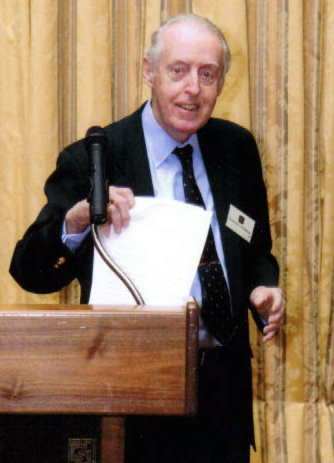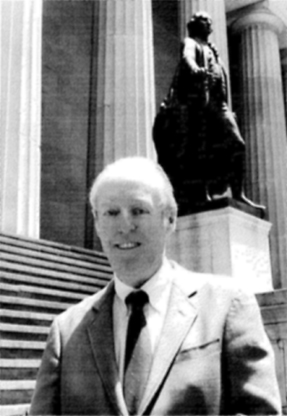
Biography of Thomas Fleming

Addressing the National Association of Scholars
Princeton University
Thomas Fleming was an historian and historical novelist, with a special interest in the American Revolution. He was born in 1927 in Jersey City, New Jersey, the son of a World War I hero who was a leader in Jersey City politics for three decades. Before her marriage, his mother, Katherine Dolan Fleming, was a teacher in the Jersey City Public School System.
After graduating from St. Peter's Preparatory School in Jersey City, Fleming spent a year in the United States Navy. He received a Bachelor's degree, with honors, from Fordham University in 1950. After brief stints as a newspaperman and magazine editor, he became a full-time writer in 1960. His first history book, Now We Are Enemies, an account of the Battle of Bunker Hill, was published that same year. It was an instant success, reviewed in more than 75 newspapers and featured as a main selection of the Literary Guild.
Over the next six decades, Fleming published numerous books about events and figures of the Revolutionary era. He also wrote about other periods of American history and published more than twenty novels, including several best-sellers, set against various historical backgrounds.
The Jersey City in which Thomas Fleming grew up was run by an Irish-American political organization, and most of its residents were descendants of Irish immigrants and loyal members of the Catholic Church. Fleming’s early novels, set in the waning days of Irish-American political power, vividly portray this world with its virtues as well as its flaws. One critic called the books "a powerful fictional experience that relegates other novels on big city politics to the whimsical realm."

When the electric typewriter was the newest technology
Despite his ability to write so tellingly about the world of his youth, Fleming never wanted to be an Irish-American writer. "My whole idea was to get across that bridge and be an American writer," he says.
Immersing himself in American history helped him cross that bridge. Fleming published acclaimed biographies of Thomas Jefferson and Benjamin Franklin. He wrote extensively on the American Revolution and both World Wars. He also wrote seven novels that trace the fortunes of a wealthy family, the Stapletons, through different historical periods. “These novels are my exemplars of how people are hammered by history, tormented by it, absorbed by it,” he says. “They tell us a lot about the American experience.”
Starting with the Revolution, Fleming believed Americans have been torn by what he calls "the great dichotomy," the clash between American ideals and harsh political and economic realities. It was a conflict he saw firsthand as a sailor aboard the warship USS Topeka in the Pacific at the close of World War II, and later while he was researching a history of the United States Military Academy at West Point. He spent a great deal of time at West Point between 1964 and 1968, meeting dozens of officers and their families as the controversy over America's involvement in Vietnam intensified.

With George Washington,
in front of New York's Federal Hall
Credit: Jerry Bauer
“That was my first really strong exposure to America's secular idealism. These men— and their wives— have this ideal of duty, honor, country, but in the real world of the Army, a lot of other things are going on. There's throat-cutting careerism, hostility from the civilian community, and always the possibility that at the bottom line, there's going to be a body bag. I came away with deep respect and sympathy for them.”
A frequent guest on C-Span, PBS, A&E and the History Channel, Fleming was a consultant and commentator on the PBS series, The Irish in America: Long Journey Home, and wrote the companion volume to another PBS series, Liberty: The American Revolution. He contributed articles to such magazines as American Heritage, Military History, History Today, and MHQ, the Quarterly Journal of Military History. He served as president of the Society of American Historians and the PEN American Center. He also spent ten years as chairman of the New York American Revolution Round Table and was an Honorary Member of the New York State Society of the Cincinnati. His wife, Alice Mulcahey Fleming, is a distinguished writer of books for young people. The couple has four children and seven grandchildren.
On July 23, 2017, several weeks after celebrating his ninetieth birthday, Fleming died peacefully at his home in New York City.